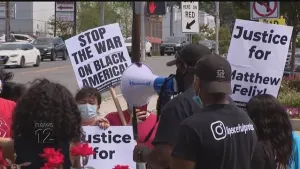More Stories
Dennis enlisted in the military after the Rev. Martin Luther King Jr. was killed and the riots that followed.
“I thought that I was going into the military for safety. I'd rather be in there fighting a war, than to be out here fighting the war and end up going to jail,” says Dennis. "It was a good experience, but I was definitely ... racism was part of my issue there. I definitely felt my Blackness, and it was like, after I got overseas, I ended up being called a militant - you know what I'm saying? Because at that time, the Vietnam War you know, you know we were separated, you know there could be, there could be 50 white guys over there, partying, drinking beers and stuff, but if there was 10 or 15 Black guys over there, hanging out, we would be told to separate, too many you know, at times, at different times, you know what I'm saying? There was a difference. There was separation, you know - segregation."
MORE: Reflections on Race: 'People should be more aware.'
MORE: Reflections on Race: 'I want people to understand that we're human'
MORE: Reflections on Race: 'How do we make long-term change?'
MORE: Reflections on Race: 'I want people to understand that we're human'
MORE: Reflections on Race: 'How do we make long-term change?'
Dennis says he'd like to be seen just as a human being.
"I'm a human being, with nothing on my mind but taking care of myself, my family. I want, listen, anything I want for myself, I want for you," said Dennis. "That's how I pray. You know, I don't want anything for somebody else that I don't want for myself, that's it."
Dennis says his job as a substance abuse counselor is to help people, and he wants the best for everyone, including himself. However, he says growing up Black on Long Island at the time he did meant he didn’t always have the best of everything, such as experiences with redlining. Dennis says there are places he’s not welcome, and that he knows an unwelcome vibe when he feels it.
"I'm in the business of saving lives and like I said ... anything that I want for myself, I want for you," said Dennis. "You know, what do I want for myself? I want the best quality of life that I could have. Now if I'm not getting the education or born into the prosperity that my grandparents had because of the way society is. If I didn't come from a redlined area and all of that stuff, things could be different. But you know, it is what it is, but that doesn't say that I can't have it today. You know, I can. But the attitudes and the behaviors don't change. I don't care if I was a wealthy Black man, there's some places that I could go in this country where I wouldn't be welcome at. Not that they would say it, but I'm sure that I could feel the vibe ... I know what it feels like ... It's not comfortable growing up in a society where you're Black and you know that other people really want to hold you back or push you back."
Dennis told News 12 that he appreciated the opportunity to talk about what life’s been like for him as a Black man, saying that no one ever asked. He also shared a story about walking up to a police officer in the city years ago to ask for directions, but the officer's reaction was initially defensive instead of helpful.
More from News 12
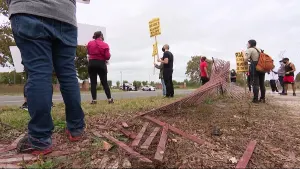
Long Island group gathers at Brentwood State Park to demand justice for Breonna Taylor
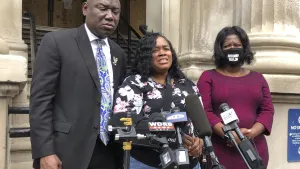
City to pay millions to Breonna Taylor's mom, reform police
2:46
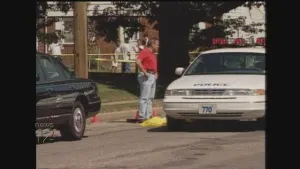
Nassau District Attorney's Office to reinvestigate 1998 Hempstead police-involved shooting
1 day, 11 hours
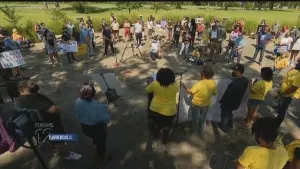
Protesters hold rally outside of Dennison Building in Hauppauge to fight for police accountability
21:27:47
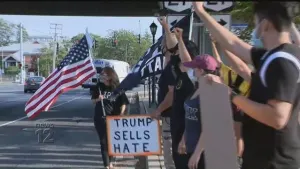
Merrick rally demands justice for Jacob Blake, Black man shot 7 times by Wisconsin police
1 day, 15 hours
